Judiciary and Crooked Nigerian leaders
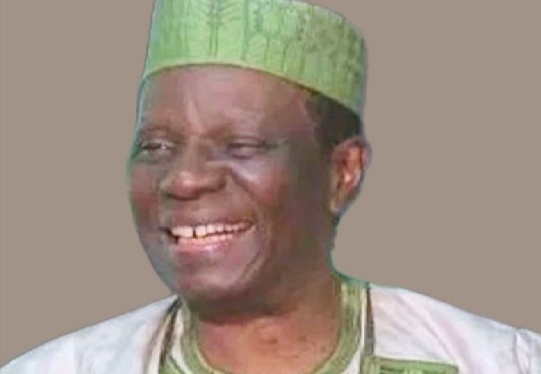
Tonnie Iredia
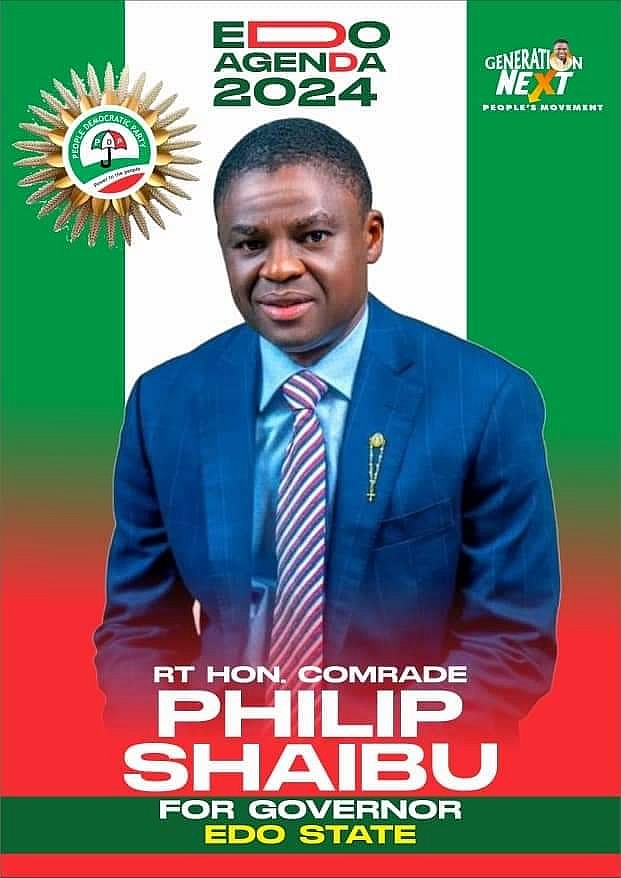
SPONSORED
By Tonnie Iredia
In June 2023, a Nigerian student, Ifeoma Amuche who emerged as the best-graduating student out of 9,500 students at the South West University, Chongqing, China was selected to make a speech on behalf of all the international students.
In many countries in the world, the story of academic excellence by Nigerian students has been the same. One would have thought that such a country of brilliant scholars ought to have been in the lead in the evolution of development strategies.
But that has not been the fate of Nigeria, her enormous natural endowments notwithstanding.
The country remains largely uneducated with her huge resources deployed to meet the prodigious needs of her political and elite class, many of whom have dubious credentials and sundry claims.
Recently, opponents of president Bola Ahmed Tinubu succeeded in publicising allegations of forgery of documents against him, but controversies around Nigerian leaders can hardly be limited to the current president.
His predecessor, Muhammadu Buhari had his own share of allegations of fake credentials.
In 2015, the then-ruling People’s Democratic Party (PDP) raised an issue over the non-availability of Buhari’s secondary school certificate.
The nation was shocked that Buhari’s claim that his certificates were in the custody of the army was formally refuted by the latter fueling speculations that the former general did not possess the basic qualification for contesting the presidential elections.

SPONSORED
Goodluck Jonathan who served as president before Buhari was also accused of a false claim of having a doctorate.
In the legislature, members of the upper house of the national assembly removed senate president Evan Enwerem from office in 1999, after a local magazine accused him of perjury about his age and schools attended.
The speaker of the lower house of representatives, Salisu Buhari was similarly removed for claiming to have a bachelor’s degree from the University of Toronto, when actually what he obtained was a diploma.
His colleagues had in addition, claimed that he was also kicked out of Ahmadu Bello University, Zaria, after faking entry credentials.
Dimeji Bankole who was Speaker of the same house from 2007 to 2011 was accused of not completing his National Youth Service Corps (NYSC) and was therefore rumoured to have submitted fake discharge documents.
Whereas the judiciary was probably the last place where Nigerians expected to hear of any allegations of forgery or falsification of records, there was an amusing controversy around the qualifications of a former Chief Justice of the federation, Muhammed Tanko.
It was Tanko himself who gave the social media the lead when he said in 2019 that vicious termites destroyed his primary school certificate.
The revelation by Tanko was contained in an affidavit he presented during his senate confirmation in which he said that the termites invaded his home in Bauchi State in 1998 and devoured all documents inside beyond recovery.
He was indeed quoted to have said that “no portion of the certificate was salvaged.”
State governors have also been accused of possessing fraudulent certificates, but some had their allegations dismissed in court.
The case of forged secondary school certificate against Bello Masari former governor of Katsina state was dismissed by the Supreme Court.
In case of Ademola Adeleke who now serves as governor of Osun state, the Court of Appeal said it was satisfied that Adeleke possessed the requisite educational qualifications to contest the governorship election.
A similar case against governor Abdulrahman Abdulrazaq of Kwara state was discontinued by the petitioner. Allegations against former Delta governors, James Ibori and Ifeanyi Okowa were not sustained much beyond media reports.
The court however disallowed Biobarakuma Degi-Eremienyo, deputy governor-elect of Bayelsa state from holding office on account of allegations against him.
Allegations of fake certificates were also made against technocrats and leaders in the bureaucracy.
A few years back, Nigeria’s Customs Service faced a huge certificate scandal as two Deputy Comptrollers General (DCG) and one Assistant Comptroller General (ACG) were said to have entered into the service without having the qualifications they claimed to possess.
The management of the service which was then headed by Col Hameed Ali reportedly made strenuous efforts to resolve the matter internally which the media said included asking the affected officers to resign honourably.
Much earlier in 2009, the former Customs CG, Alhaji Abdulahi Dikko was accused of forging his certificates.
Perhaps the more intriguing cases of recent concern leaders who allegedly forged their NYSC certificates.
While former speaker Dimeji Bankole absolved himself from blame concerning the accusation of holding an undeserved discharge certificate by publicising his certificate, place of primary assignment and photos with his colleagues in NYSC uniforms, many others didn’t acquit themselves.
For example, in 2017, the Supreme Court affirmed that Christian Abah, a member of the House of Representatives representing Ado/Okpokwu/Ogbadigbo Federal Constituency in Benue State forged.
the Ordinary National Diploma (OND) certificate purportedly issued in 1985 by the Federal Polytechnic, Mubi, Adamawa State. The cases of former minister, Stella Oduah as well as ministers Hannatu Musawa and Tunji-Ojo are yet to be concluded.
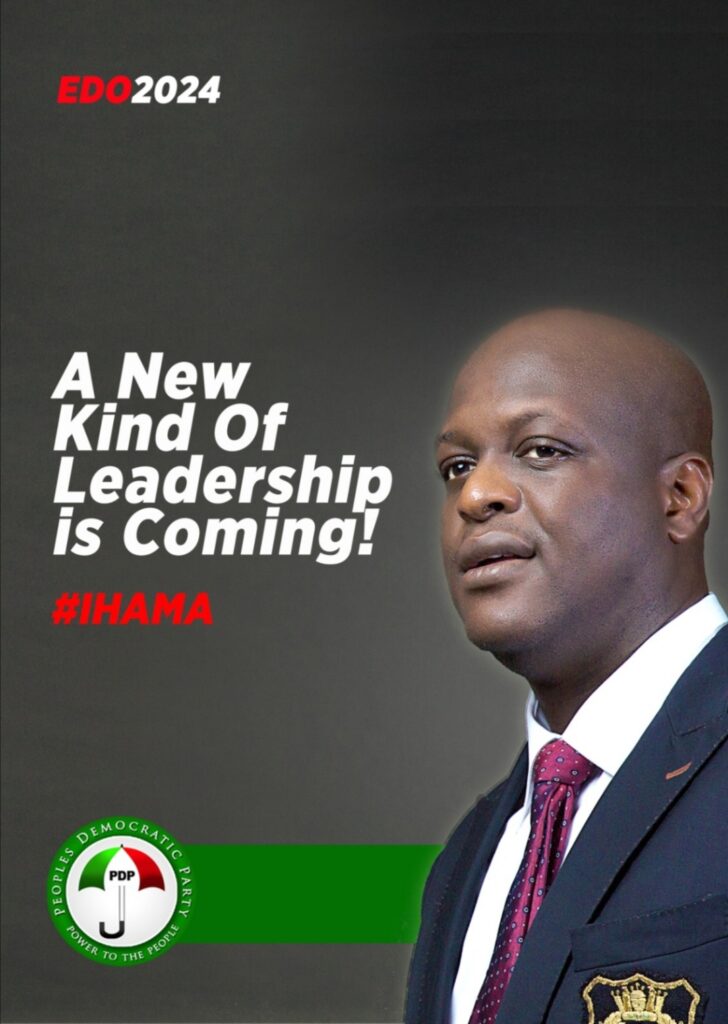
SPONSORED
From the above, it is obvious that although a few Nigerian leaders have successfully defended allegations of fake or forged certificates against them, it is obvious that there are too many Nigerian leaders with questionable credentials.
Whereas it is also true that some of the allegations are either frivolous or fabricated by political opponents, it is time to call attention to the large number of unacceptable persons with dirty backgrounds in several leadership positions across the board in Nigeria.
It is practically impossible for a nation to make sustainable progress if its leaders fraudulently attained their positions. Apart from their incapacity to be pragmatic in formulating public policies of national development, the continued stay of such frauds in office sends a dangerous signal to the youth and posterity.
Important organs and institutions of society must wake up to their responsibilities to curb the menace.
The media for instance must redouble its efforts to use its pervasive organs of mass communication to illuminate reports on fraudulent leaders. For this to succeed, the nation must be ready to condemn leaders who deploy security and law enforcement agencies to silent media professionals.
The media itself must recognize that it is not enough to publicise reports on leaders with fake credentials, such reports must be followed continuously until they make the desired impact.
This is what is known as the theory of force multiplication which enables the agenda set by the media to stick.
Another societal institution which can help stem the tide of fake leaders is the judiciary- an institution generally expected to be the last hope of the common man but which has in the last few years become too old-fashioned and unadventurous to serve as an instrument of change for development.
Apart from several stories of how judges save their indicted colleagues especially in matters of corruption, the judiciary has become a technical device for covering up unwholesome political behaviour.
Each time an allegation is made against a leader, the judiciary often uses technicalities to save the leader without offering society any opportunity to stop the alleged misdemeanour.
If a citizen allegedly stole public funds or presented fake credentials, all the people hear is that the case was brought by the wrong person or at the wrong time or through the wrong method.
That approach may meet court rules and save an indicted person but it will never dissuade bad behaviour as people with huge resources can always escape through the transparent technical safety valves in our courts.
The point to be made is that the Nigerian judiciary appears to work for only litigants, while abandoning its responsibility to the society at large.
Again, the judiciary has not been consistent with its pronouncements making it hard for people to know when an issue is right or wrong.
The other day, the NYSC Director General testified that the discharge certificate in the possession of the Enugu state governor was fake.
Many had thought that the decision in the case would follow that of governor Godwin Obaseki of Edo state in which the courts held that the testimony of the issuing authority- the University of Ibadan could not be controverted.
Our courts must momentously help to purge society of undesirable elements.
X @TonnieIredia


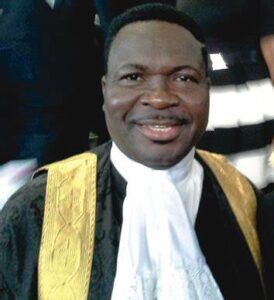
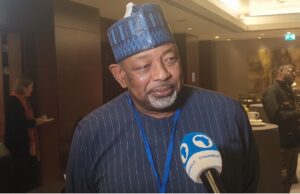
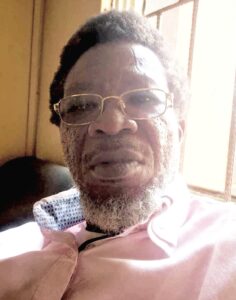
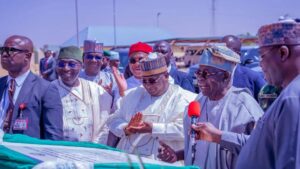
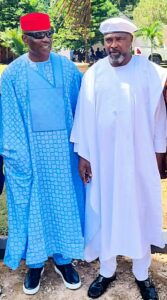
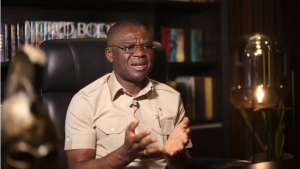

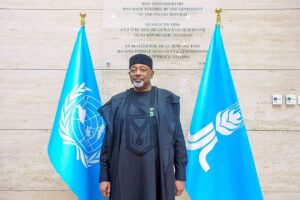
1 thought on “Judiciary and Crooked Nigerian leaders”